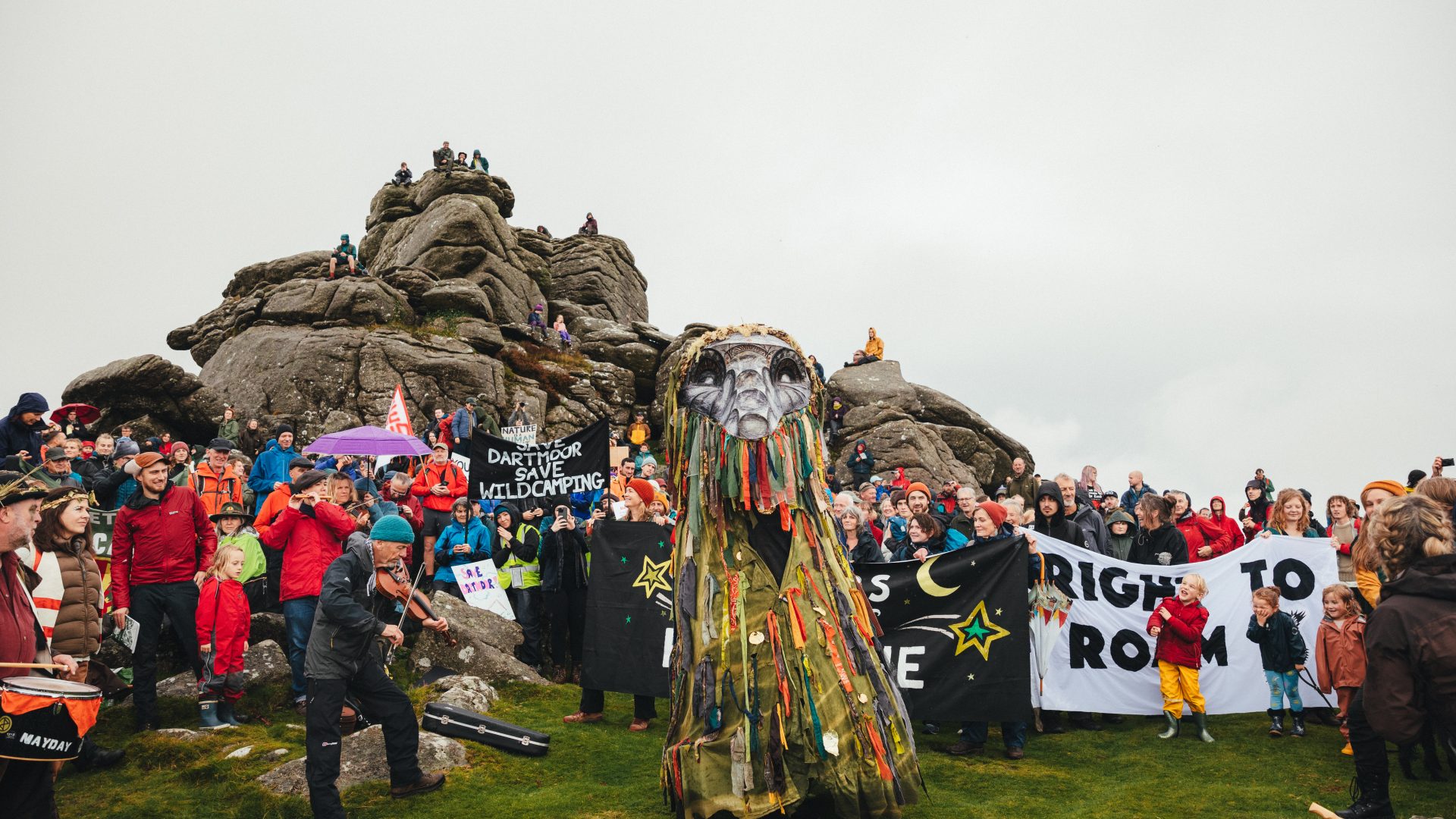
Dartmoor: Win or lose, we need new access legislation
Published: 12 November 2024
Last month, five judges of the Supreme Court heard the final instalment of the legal challenge to wild camping rights on Dartmoor. The case, which has seen landowner Alexander Darwall attempt to overturn the bylaws which give the public a legal right to wild camp on the commons, has been rumbling on for two years now.
The case, and campaign which has grown around it, has attracted widespread media attention, and seen thousands take to Dartmoor and London in protest. It has resonated not just with wild campers, but with those broadly passionate about being able to connect with nature, precisely because of how rare such opportunities have become. The stats speak for themselves. Our access to land in England is confined to just 8% of the country, with most of that far from where most people live; there is an uncontested legal right to swim in just 3% of our rivers; wild camping is restricted to just 0.2% of England – on Dartmoor. Every day we are told of further ‘micro-enclosures’; quiet, often unseen erasures: lost footpaths, closed commons, fenced off rivers. The list continues to grow.
While Darwall probably banked on the relative low profile of wild camping in keeping the case out of the limelight, instead it has drawn widespread attention to the fragility and insufficient nature of access to the countryside, as well as the possibility of what we might stand to gain. Contrast our model of presumed exclusion, for example, with Scotland where such rights extend to all land and water with some sensible exceptions, backed up by a robust and easily understood code.
Emboldened by Dartmoor, and inspired by Scotland, campaigns are gathering momentum to turn the tide on access, and to translate the very many loses into a lasting win for people’s ability to belong to, connect with, and care for the countryside. We envision a future where rights are paired with responsibilities, where access enables belonging, and where belonging opens a doorway into a deeper caring for the natural world. Wild camping has become totemic of this possibility because sleeping under the stars in a national park offers such a doorway: it is a way into deep connection with land, each other and the self. The court case has given us an opportunity to celebrate what Dartmoor provides, and – with Campaign for National Parks – to call for this to become more widely available.
Whatever decision emerges from the Supreme Court, it’s clear that we need new legislation to defend and extend our access to the countryside. That’s why, win or lose, once the verdict comes in we’ll be back up on Dartmoor to demand the access reform we all deserve. See you there.
Right to Roam, alongside BMC in Wales, are campaigning for better access to the countryside: for a presumption of access such as that which is enjoyed in Scotland. Join our mailing list for updates and please consider donating to the campaign: https://www.righttoroam.org.uk
Image: Hound Tor protest, Emma Stoner
